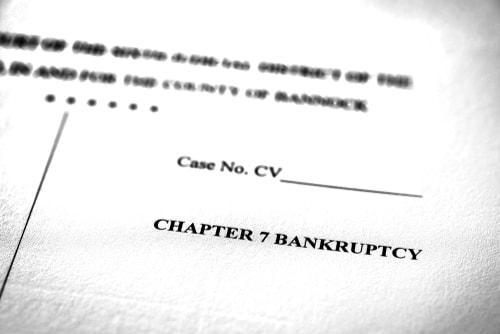Will Filing Chapter 7 Bankruptcy Stop a Foreclosure?
 If you are behind on your monthly mortgage payments and you have reached the point that your loan is in default, you could be facing a possible foreclosure on your home. You probably realize that if the bank forecloses on your loan, your home will be seized and sold, with the proceeds of the sale will go toward satisfying what you owe the bank. In the meantime, you might not have a place to live, and the foreclosure will leave a lasting mark on your credit.
If you are behind on your monthly mortgage payments and you have reached the point that your loan is in default, you could be facing a possible foreclosure on your home. You probably realize that if the bank forecloses on your loan, your home will be seized and sold, with the proceeds of the sale will go toward satisfying what you owe the bank. In the meantime, you might not have a place to live, and the foreclosure will leave a lasting mark on your credit.
Most people who are facing possible foreclosure often have a substantial amount of other debt in addition to their home loan. These obligations may include medical bills, credit card debt, and outstanding loans, such as personal loans and educational loans. As a result, it is not unusual for an individual in such a situation to consider filing for bankruptcy under Chapter 7 of the U.S. Bankruptcy Code. In certain cases, Chapter 7 bankruptcy might allow you to stop foreclosure proceedings, and a qualified bankruptcy attorney can help you understand your available options.
Bankruptcy Puts a Stay on Collection Activities
Under federal law, filing for bankruptcy of any type will result in an automatic stay being issued on all collections activities related to any debt that you have. The automatic stay applies to foreclosure, even if the lender has already initiated formal foreclosure proceedings. If the lender continues to push the proceedings after the stay has been ordered, your lender is violating federal law, and sanctions against the lender are possible.
The stay, however, will not last forever. In fact, the lender can petition the bankruptcy court to lift the stay so that foreclosure proceedings can continue. If the court has good reasons to believe that you will not ultimately be able to keep your home, the court may grant the lender’s petition to lift the stay.
Chapter 7 and Foreclosure
The goal of a Chapter 7 bankruptcy is to have as many of your obligations as possible discharged. During the proceedings, you may be required to sell any property of value. Texas law provides exemptions for the equity value in your home, presuming that your property does not exceed the established acreage limits of 10 acres in a city, town, or village, or 100 acres anywhere else.
Medical debts, credit card balances, and unsecured loans are typically eligible to be discharged in a Chapter bankruptcy, as is the amount you owe on your mortgage. Discharging your mortgage obligations, however, does not mean you simply get to keep the home; it means that you are no longer personally responsible for paying the debt. The lender still has the right to take the home to try to recoup its losses. In practice, this means that when the automatic stay expires, your lender is likely to restart the foreclosure process. The proceedings must start again from the very beginning, giving you an additional few months to decide what you will do next.
From a practical standpoint, if you have already paid a substantial amount of equity into your home, a Chapter 7 bankruptcy might not be the best option for stopping a foreclosure. If you do not have any other choices, however, a skilled attorney will help you pursue a favorable outcome in your unique situation.
Call a New Braunfels Bankruptcy Attorney
If you have fallen behind on your mortgage and you are looking at the possibility of bankruptcy to stop foreclosure proceedings, contact an experienced San Antonio Chapter 7 bankruptcy lawyer at the Law Offices of Chance M. McGhee. Call 210-342-3400 for a free consultation and case review today.
Sources:
https://www.uscourts.gov/services-forms/bankruptcy/bankruptcy-basics/chapter-7-bankruptcy-basics
https://statutes.capitol.texas.gov/Docs/PR/htm/PR.41.htm#41.001






